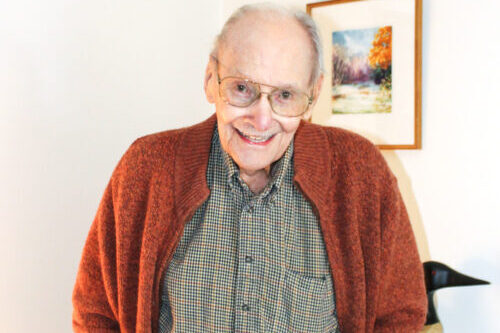MaineCF's leadership has been building big for 40 years
As with any organization that survives - and thrives - for 40 years, there are many factors that can help capitalize on the best of times and buoy it through the tougher times. Determination, talent, strategy and even luck play a role in success, but leadership shapes the direction of any organization. To gain more insight into the evolution of Maine Community Foundation, we spoke with the former CEOs who formed what is now the 21st century MaineCF.
Hank Schmelzer (HS) served as CEO from 1999-2008. Meredith Jones (MJ) succeeded Hank and led MaineCF from 2008-2015. Steve Rowe (SR) came next and was in the office from 2015-2021.
Of course, we must acknowledge the vision of both the founding president, Ed Kaelber (CEO from 1983-1989), who passed away in 2018, and Marion Kane (CEO from 1989-1999), who passed away in 2012. We are the beneficiaries of their wisdom and passion - and we are grateful for their early efforts to create and build the foundation that thrives today.
Every story has a beginning...
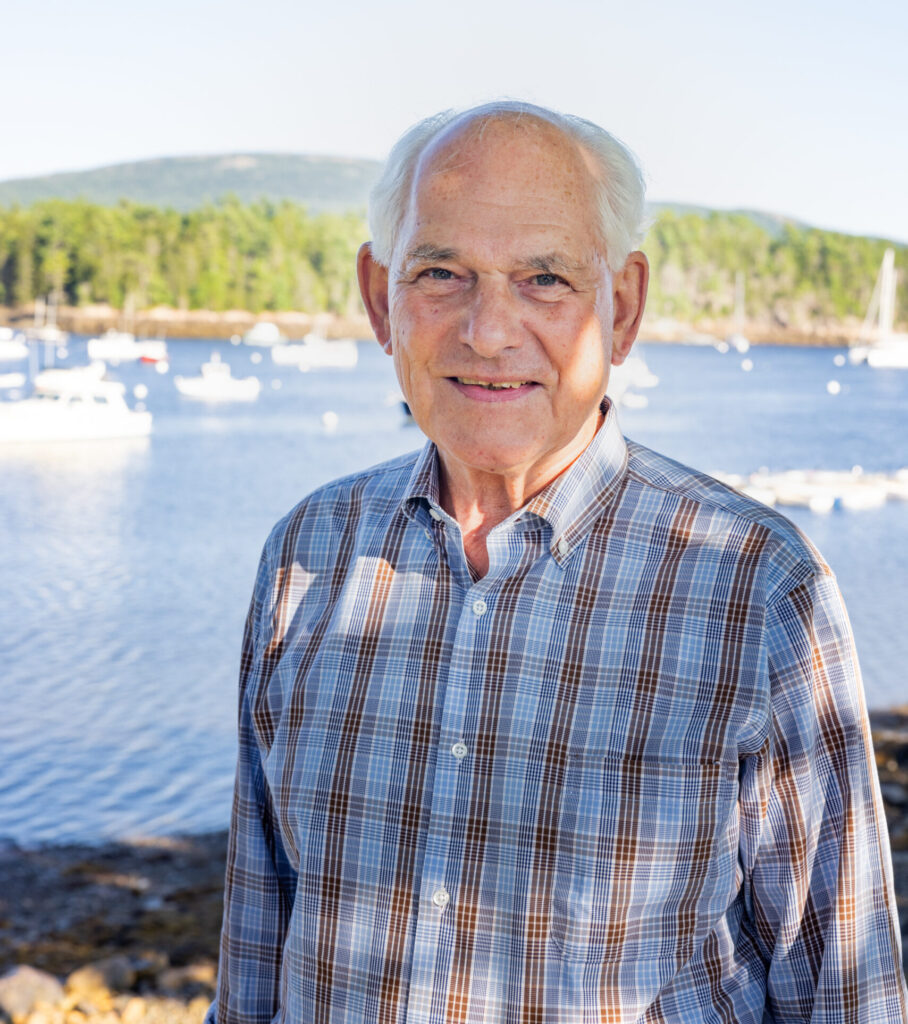
Hank Schmelzer. Katherine Emery photo
HS: Well, the board wanted to bring in expertise in processes and systems, and my background in finance seemed to fit. It was interesting and fun to see things "click" for me - the community foundation world is a world unto itself, and it was intellectually challenging.
The job introduced me to many different parts of Maine beyond those I was familiar with, as well as to many nonprofits and people doing good work in the state. There is no organization that is doing as much to collaborate on projects across the state.
MJ: I was hired by Marion Kane, who wanted someone on staff who had knowledge of the issues in Maine, which I had from prior work at the Maine Development Foundation. I also, coincidentally, had networks with many existing community foundation donors.
The mission is what keeps me close to MaineCF. It has tremendous assets. It's rooted in the community locally, but with the potential for statewide and even national level impact. What makes community foundations unique is the wonderful nexus between donors with resources and the nonprofits that are on the frontline, tackling the array of issues Maine faces.
SR: I was attracted by the foundation's focus on working with donors and others to improve the quality of life for all Maine people. That was my goal when I served in state government. I was also very impressed with the commitment and professionalism of the board, staff, and volunteers. And, of course, the donor base was strong. Without donors, the foundation wouldn't exist.
The foundation's statewide focus and commitment are clear and are manifested in the makeup of the board and county committees as well as the foundation's community building and other grantmaking activities. The foundation's donors clearly appreciate its statewide focus and commitment.
HS: There were three areas we worked on with donors and organizations: conservation, statewide and building up the county funds network. The county funds took a little time for me to appreciate, but they provide such great local outreach, and several donors were interested in seeing county funds taking off. The potential to engage people throughout the state was huge.
MJ: The county committees are our eyes and ears in the state - they live in Maine's communities and have the sense of what's really important to people there.
MaineCF's Impact
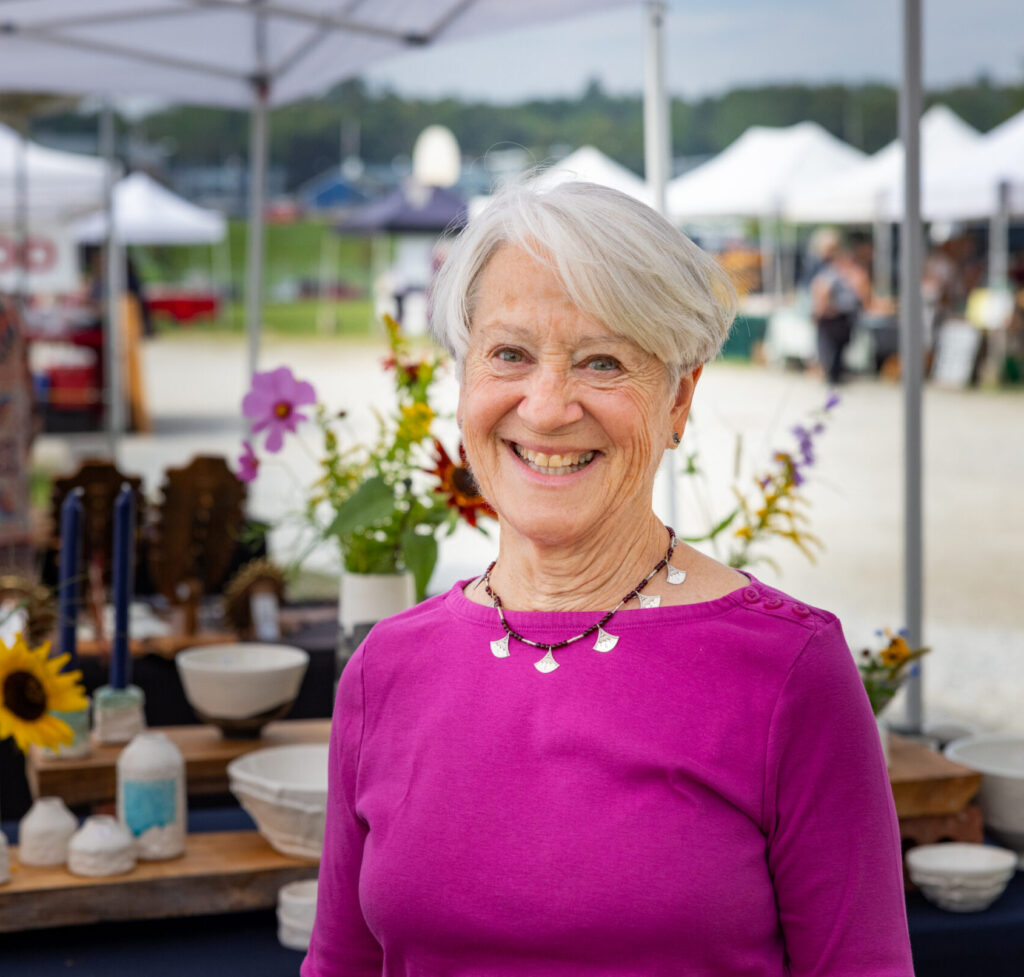
Meredith Jones. Katherine Emery photo
MJ: Historically, the foundation's approach to its work hasn't been about fixing problems; it's about identifying a community's assets, finding them and capitalizing on them. Marion's brilliance created this. The Maine Compact for Higher Education is a good example. Marion was an outstanding and committed leader in this effort.
HS: MaineCF helped create the compact and got national attention and funding. This evolved into what is now Educate Maine, its own standalone organization. It brought together business and community leaders focused on how to improve the education system in Maine, and we were a convener and funder of that program.
HS: MaineCF was out ahead of what was later called DEI (diversity, equity and inclusion). In the '90s we created the Equity Fund to support the LGBTQ+ community. It started pretty basically and low-key, but it was there and something we focused on and expanded. In the end, it got more donors involved, too.
MJ: When it was created in the mid- '90s, the Equity Fund created a level of discomfort among some board members. After hearing from one of Maine's assistant attorneys general about the extent of discrimination taking place, the board voted to accept the funds for the Equity Fund. The People of Color Fund [now the Black, Indigenous and People of Color Fund] fund pushed MaineCF into an area we hadn't done much with before, too. The two funds are now part of the foundation's emphasis on equity.
SR: The issue of systemic racism is real and, importantly, the foundation has adopted a number of racial equity initiatives. One of these is the Leadership Learning Exchange for Equity (L2E2). Through participation in this program, more than 200 white Maine leaders have gained a better understanding of systemic racism and the privileges and advantages they have as white persons. Most, if not all, are taking actions to address white privilege and its consequences in Maine. That's real impact.
Hopes for the next 40 years
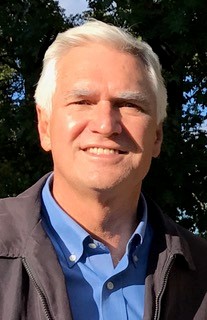
Steve Rowe
SR: This is what the "big stuff' means - the areas that matter and where donors' investments can have the greatest impact. Through partnerships, we need to determine where we can leverage our resources in the most impactful way. Climate change is certainly one of those areas.
MJ: My hope for the foundation's future is to continue working together. Sometimes it's important to lead from the front, but it's equally important to sometimes lead quietly from beside and behind.
HS: We can build a better Maine if we're more visible. People will come to the community foundation with resources and opportunities. There's a greater awareness now of the existence of community foundations, what they do, and what their roles can be. We need to show donors what we can do to help. There are great stories to tell - there's no question about that.
SR: It's all about community. My hope is that the foundation continues to work with donors and others to leverage resources to address major quality of life challenges, such as health, education, employment, racial equity and climate change. Doing this will help ensure that future generations of people can live healthy, happy and productive lives in this special community we call Maine.
MaineCF's Past Presidents
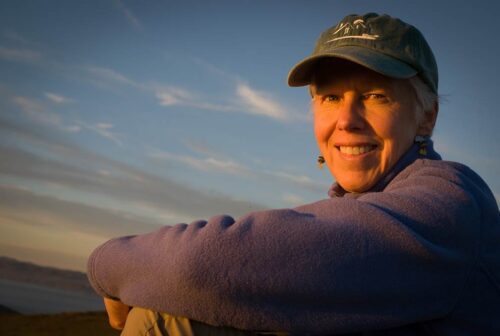
Marion Kane in 2009
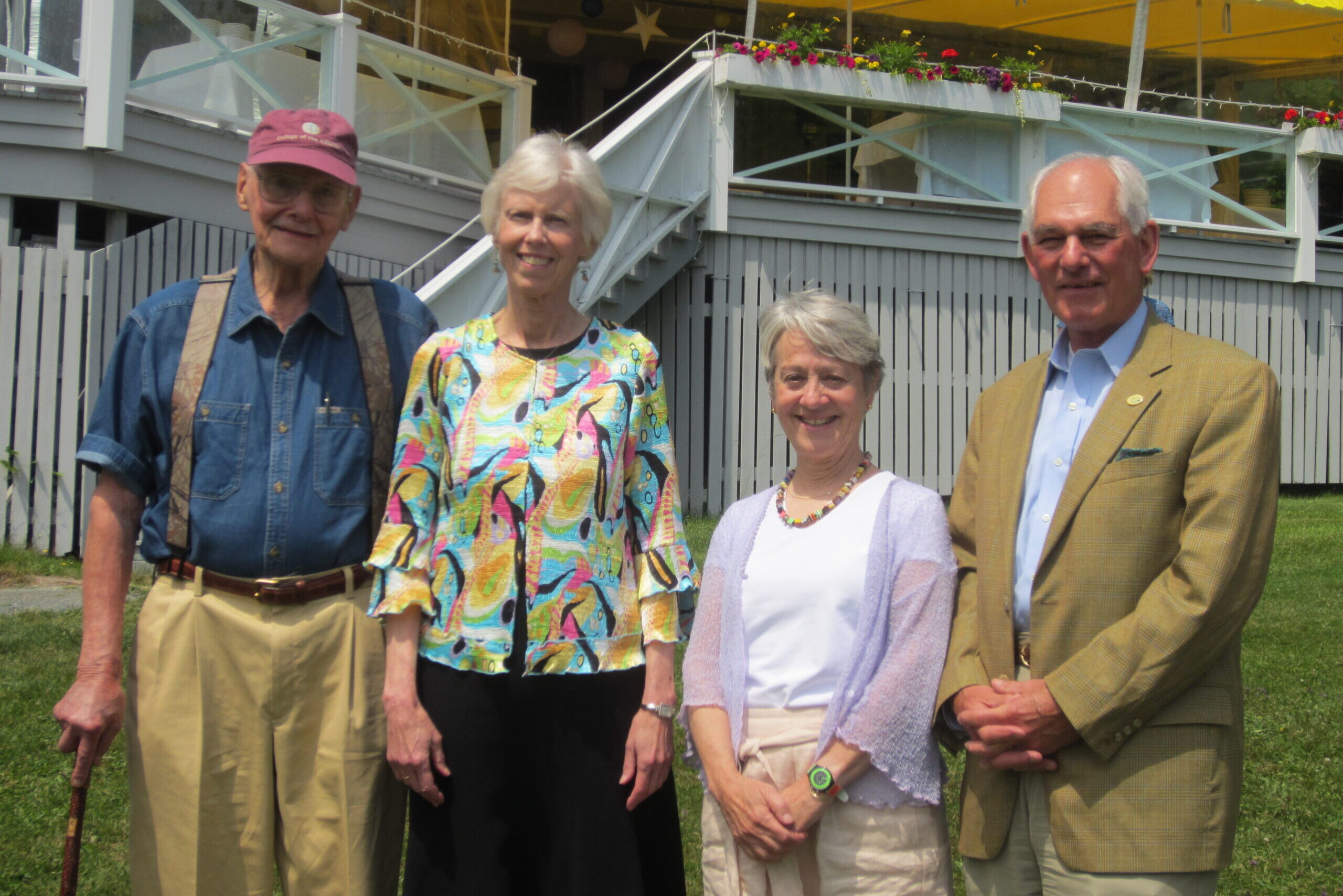
Ed Kaelber, Marion Kane, Meredith Jones and Hank Schmelzer in 2012
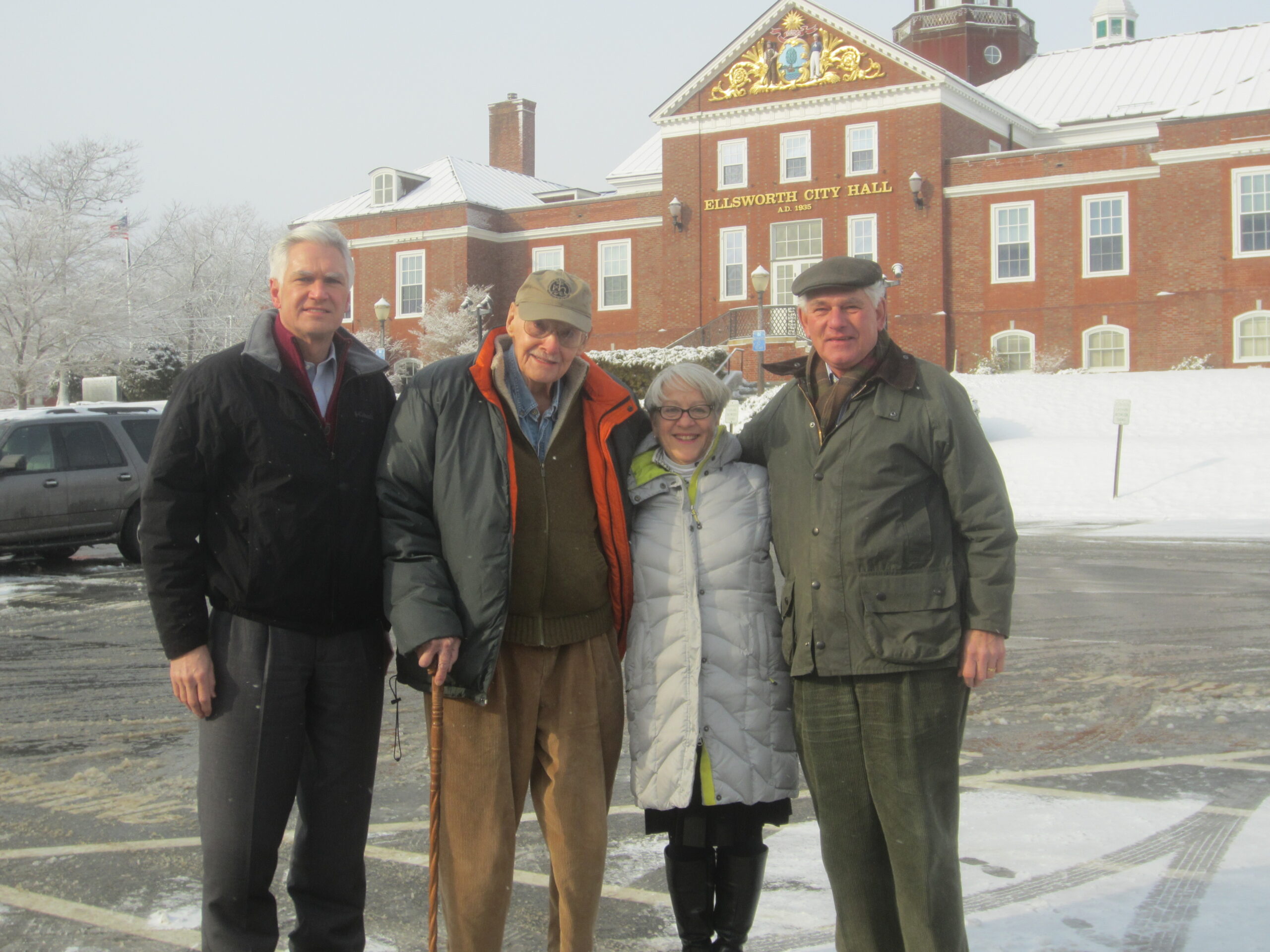
Steve Rowe, Ed Kaelber, Meredith Jones and Hank Schmelzer in 2016
